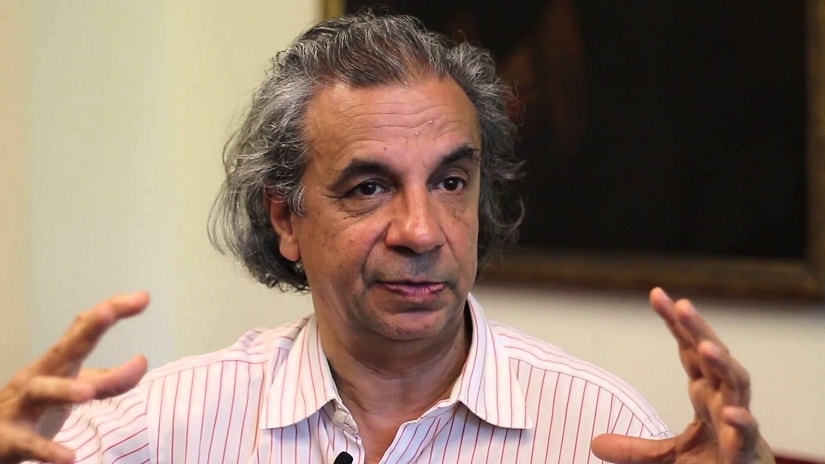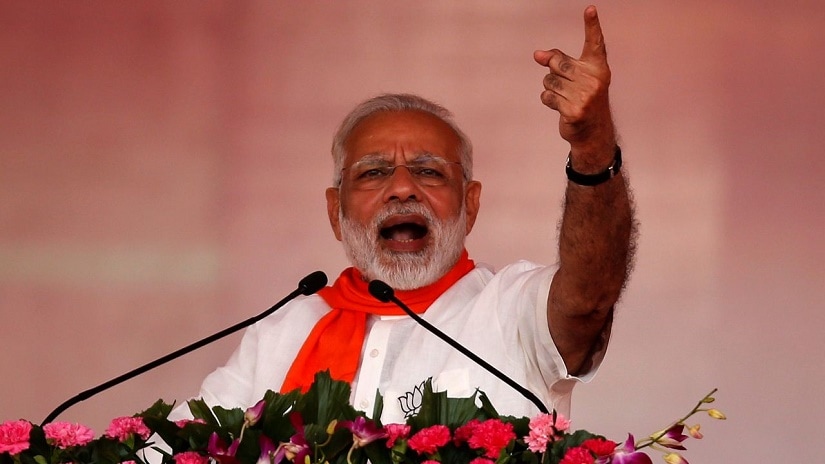populism /pɒpjʊlɪz(ə)m/ noun support for the concerns of ordinary people. “It is clear that your populism identifies with the folks on the bottom of the ladder” the quality of appealing to or being aimed at ordinary people. “Art museums did not gain bigger audiences through a new populism” *** A seemingly harmless word, the context in which the word ‘populism’ appears in most modern-day discourse or current news reports is usually a negative one. You’re very likely to see it paired with words like ‘rise’, ‘growing’, ‘fears’, ‘threat’. As a political ideology, populism is defined as an “approach that seeks to disrupt the existing social order by solidifying and mobilising the animosity of the ‘commoner’ or ‘the people’ against ‘privileged elites’ and the ‘establishment’.” Contemporary events such as the 2014 general elections in India, Donald Trump’s US presidency and the Brexit referendum have all been ascribed to the rise of populism across the world. How really does populism work, and why has it come to have such negative implications? Akeel Bilgrami, the Sidney Morgenbesser Professor of Philosophy at Columbia University in New York and a philosopher of language and the mind, is in a unique position to answer that question. Bilgrami frequently examines contemporary phenomena at the intersections of society, culture, politics and economics, and on a recent visit to Mumbai, delivered a lecture at Jnanapravaha that dissected populism. The objective of the talk was to understand how ‘populism’ had come to acquire a pejorative connotation, and Bilgrami’s view is that the “incessant punditry of journalists is part of the problem”, because it has led to a misleading, ideologically subjective interpretation of the term. Various types of populism exist; Bilgrami, however, points out that (largely) there are two distinctions — pro-globalisation (prevalent in India, Turkey) vs anti-globalisation (as seen in the US, UK and certain parts of Europe), and right-wing populism (ultra-nationalists in Germany) vs left-wing populism (Jeremy Corbyn and Bernie Sander’s ideologies). [caption id=“attachment_4261513” align=“alignnone” width=“825”]  Akeel Bilgrami. Youtube screengrab[/caption] He also introduced the idea of ‘faulty inferences’, by examining what populism means for the citizens of a country. He used the example of a working professional in the UK who may think about the humane policies enacted after World War II and wonder which supernational identity — in this case the nation — is capable of effecting such changes. Bilgrami terms such questions as being ‘shrewd’. “But the same citizen may question the presence of immigrants in their nation, citing the reason that they are taking away their jobs or causing a breakdown of their culture. This is a conclusion which has no logic; it is a ‘faulty inference’,” he explained. Bilgrami cautions that it is important not to blame citizens in such circumstances, because the political class is responsible for the way people think. This, he says, is the reason why Barack Obama was perceived favourably when he was up against John McCain for the presidency – despite having a less-than-favourable policy for immigrants. “This is why African American voters picked Hillary Clinton over Bernie Sanders, despite the fact that the latter’s policies would have worked more in their favour,” he says. As an illustration, Bilgrami cites Edward Luce’s report in the Financial Times which compared Barack Obama and Donald Trump’s inaugural ceremonies: why was the Trump event described as “channeling rage” and Obama’s deemed hopeful and a memory of America’s golden past? “What Luce did not point out is that Obama did not fulfill the people’s hopes over his two terms, which is why there was rage when Trump was elected,” he explains. The rage people felt during Trump’s win is the same that was channelled during Brexit, and Bilgrami adds that it is possible to understand who felt this rage when they are differentiated from those who supported Hillary Clinton. [caption id=“attachment_3043056” align=“alignnone” width=“825”]  Hillary Clinton and Donald Trump. Image from AP[/caption] Of how populism functions within democracies, Bilgrami said that it opposes elected representatives who surrender power to upper class, un-elected representatives, such as bankers and financiers, or as Mahatma Gandhi described them — ‘oligarchies of expertise’. Bilgrami cited Manmohan Singh (among other politicians) as an example of such elected representatives. ‘Capital flight’ is another term Bilgrami introduced in his lecture, referring to how changes made in the ‘70s created “a manic mobility of capital” across economies, which meant that no real progress of policy could be pursued. In the absence of international solidarity whereby workers could move towards capital, he said that there was a desire to partially de-link from the global economy and globalisation. About India specifically, Bilgrami says that populism is fuelled by the middle class which has grown considerably. Using Gramsci’s definition of hegemony (according to which the ruling class convinces all other classes that its interests are the interests of everyone else), he explained that Narendra Modi’s government is authoritarian despite being hegemonic. “If a government has convinced the people that its policies are for the greater good, it should not have to enforce them in an authoritarian manner. The Modi government’s authoritarianism is compulsive and pathological,” he opines. The acceptance of demonetisation on the part of the citizens is an indirect sign of a hegemonic state, according to Bilgrami. “Ordinary people were made to suffer and stand in lines, and demonetisation had a bad effect on the economy. One would have imagined that the anger and resentment would have shown in the Uttar Pradesh elections, but it didn’t,” Bilgrami says. To understand the Modi government’s authoritarianism, Bilgrami says one needs to understand the role that the Rashtriya Swayamsevak Sangh (RSS) plays. “India is the only populist democracy in the world which has a paramilitary, ideological body like the RSS, and the idea that the Bhartiya Janata Party can disconnect from it is not possible — this has a lot to do with authoritarianism. Much of the authoritarianism gets shunted off as the citizen’s feeling that ‘Our people are in power’,” he adds. [caption id=“attachment_4262193” align=“alignnone” width=“825”]  Prime Minister Narendra Modi in Gandhinagar. Image from Reuters[/caption] Bilgrami also illustrated the limitations of liberalism using the example of the two opposing attitudes towards climate change: on the one hand, there are deniers such as Trump and many in the Republican party, who refuse to acknowledge that it is an environmental problem, and on the other hand are people who acknowledge the magnitude of the issue but fail to accept that the end of destructive capitalist practices is the only way to solve the problem. “How are these two approaches any different?” Bilgrami wonders. Unlike the case of Brexit and the opinion that immigrants steal jobs, which is a faulty inference, he feels that people aren’t making the right inference when it comes to climate change. He attributes this to the lack of conceptual resources and vocabulary, which have simply been left out of public knowledge; people do not have the words to think of a possible solution. He is of the opinion that a drive for profit has prevented us from solving the problem of global warming. The press too has played a role in creating this lack of conceptual understanding and with their (as Bilgrami puts it) “pervasive cheer leading” for governments. “At this point,” concludes Bilgrami, “the end of capitalism seems more difficult than the end of the world.”
Just how did the word ‘populism’ come to have such negative implications, and how does it explain the rise of leaders like Narendra Modi and Donald Trump?
Advertisement
End of Article


)



